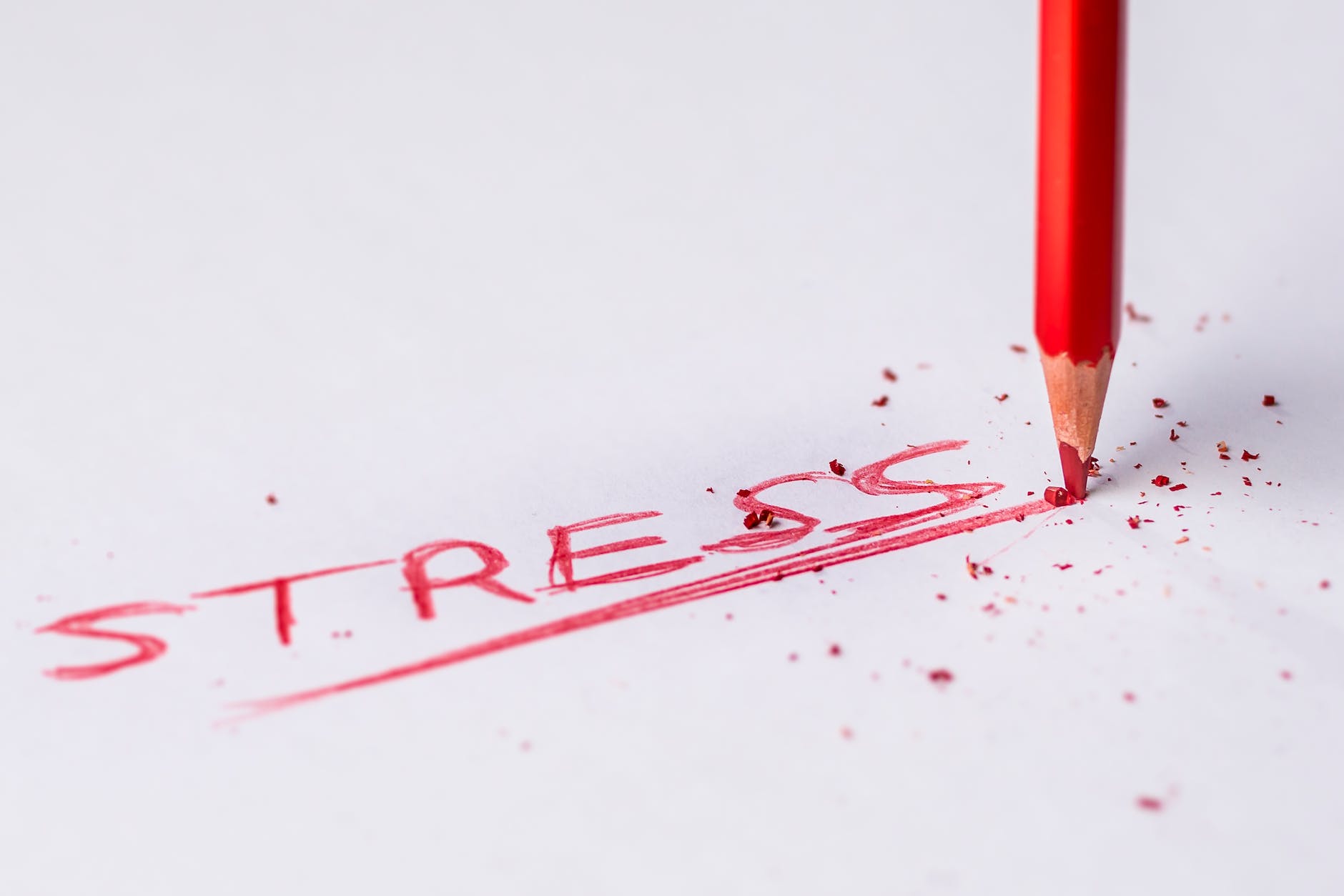April is National Stress Awareness Month, and many organizations are having conversations about how to help their employees manage their stress levels. Although stress isn’t all bad all the time, chronic stress can be harmful to your health – so it’s important to learn how to keep stress levels low.
While talking about managing stress is important – we recently published an article on how to manage your stress response (like fight or flight) on the MINES blog – what people don’t talk about as often is true stress awareness.
While stress management is about how to deal with (and reduce) stress when it’s already an issue, stress awareness is about how to be more aware of stress to prevent it from rising to begin with.
How can we become more aware of what’s going on with our stress levels? How can we practice emotional self-awareness so that we’re able to identify the warning signs that let us know when our stress levels are getting out of hand? How can we be more conscious of the triggers that tend to cause high stress for us, so that we can be proactive about stress levels before they get too high?
In today’s blog, we’ll discuss this idea of stress awareness – not just stress management – and give you some ideas on how you can be more self-aware in this area of your life.
How does self-awareness help with stress?
Being self-aware of your emotions is an important life skill that has many benefits, including helping you deal with stress.
Practicing the skill of self-awareness means slowing down and noticing your thoughts, feelings, and actions. It’s about paying attention to how certain triggers make you feel both in your mind and your body, and closely examining what these feelings could mean about your stress levels and mental health.
Practicing self-awareness is the first step to managing stress. If you don’t practice self-awareness, then you may not notice that you’re under stress until you’re overwhelmed by it. By then, it may be very difficult to bring stress levels back down. Early detection is key when it comes to managing stress – when you’re able to notice early signs of stress, you can take quick action to prevent yourself from becoming overwhelmed.
Some other benefits of self-awareness for stress include:
- Stronger coping skills: Self-awareness can help you identify your strengths and weaknesses, which can help you develop effective coping skills to manage stress.
- Better decision-making: Being self-aware makes you more likely to make decisions that are in line with your values and priorities. This can help you avoid situations that might cause stress to begin with.
- Improved emotional regulation: Self-awareness can help you to identify your emotions, where they come from, and what you need to do to manage strong feelings.
- Increased resilience: Self-awareness can make you better able to bounce back from stressful situations.
- Improved relationships: Self-awareness can help you better understand your own needs and emotions, which can help you communicate more effectively with others. This can improve your relationships and reduce stress caused by misunderstandings. Having a strong social support network is also key in helping you manage stress and other life difficulties.
Ideally, practicing self-awareness can make it less likely for stress levels to become too high to begin with, which reduces the need to use stress management skills.
How can I be more aware of stress?
So how can you practice stress awareness – before you need to practice stress management?
Building self-awareness is a lifelong journey. For most of us, it’s a skill that grows with lots of practice over time. But it is a skill, not an inherent personality trait. That means that, just like with any other skill, everyone can foster self-awareness with practice and dedication.
Here are some tips you can use to help yourself and others become more aware of stress.
Identify your triggers
To be more aware of stress levels, it’s first important to understand what makes you feel this way. We call these things triggers or stressors. And they are different for each person.
For example, one person’s main stressors might be their job and their relationships. Another person might be stressed by finances, but find that their work and their marriage are things that bring peace to their life, not stress.
Reflect on your life and think about what areas of your life bring you the most stress. They may be unavoidable (for example, if your job is one of your main stressors), but it’s still helpful to understand when you’re most likely to be stressed so that you can take action to prepare.
Try to be as specific as possible when identifying your stressors. For example, it may not be work in general that causes you stress, but having to deal with a specific supervisor. You may not be generally stressed in your marriage, but feel stressed when your partner begins to talk to you about finances.
Keep a stress journal
Keeping a stress journal, where you write down stressful events and how they made you feel, can be a powerful tool in becoming more aware of your stress levels.
By recording your stress levels and triggers, you can start to identify patterns and gain insight into what might be causing your stress. Your stress journal can also serve as a space to reflect on how you responded to stress, as well as what coping strategies were effective for you.
Try to record your stress levels and triggers at least once a day, and be as specific as possible. What happened? How, exactly, did you feel? What did you do to try to manage the situation?
Figure out your “warning signs”
What are some of the signs that you’re under a lot of stress? Think in terms of thoughts, feelings, and behaviors. When you’re able to identify what stress looks and feels like for you, you may be more likely to be able to catch it and stop it from rising too high.
For example, many people have thoughts like, “I can’t do this,” “What am I going to do?”, “I hate ____ (my job, my partner, my life)” when their stress levels are rising. They might have emotions like anger, frustration, hopelessness, and guilt. They might notice behaviors like snapping at loved ones or overeating.
Take note of what stress looks like for you in terms of thoughts, feelings, and behaviors. These are your stress “warning signs.” When you notice these signs, it’s a red flag to stop and do something about your stress levels. This is an important first step in stress management.
Pay attention to physical cues
On top of thoughts, feelings, and behaviors, there are probably also physical cues that let you know your stress levels are rising. The stress response is biological and comes along with many changes in your body that are supposed to help you deal with the immediate danger or stressor. Over time, these biological changes can start to cause other, more unpleasant effects in your body.
Pay attention to these physical cues of stress as well. For example, you might experience muscle tension or headaches. You might notice that your jaw is clenched or that your brow is furrowed. You might feel hungrier than usual, or you might lose your appetite completely.
Practice mindfulness
Although mindfulness meditation has its origins in Eastern spiritual practices, it’s now used as a secular health intervention for many conditions. One of the most well-known interventions that uses mindfulness is Mindfulness-Based Stress Reduction, or MBSR.
MBSR teaches people how to use mindfulness to become more aware of, and therefore reduce, their stress levels. Try doing a body scan, an easy mindfulness exercise taken from MBSR.
To practice the body scan, lie down on your back in a comfortable position and close your eyes. Starting at the top of your head, scan down through your body, noticing any areas of tension or discomfort. As you focus on each body part, try to relax that area and let go of any tension. This exercise can help you become more aware of physical sensations in your body and manage stress.
If you’re having trouble coping with stress levels or would just like some extra support, MINES & Associates offers free and confidential counseling 24/7 to members of our Employee Assistance Program. Give us a call to learn more about your EAP benefits.
To Your Wellbeing,
The MINES Team












Leave A Comment